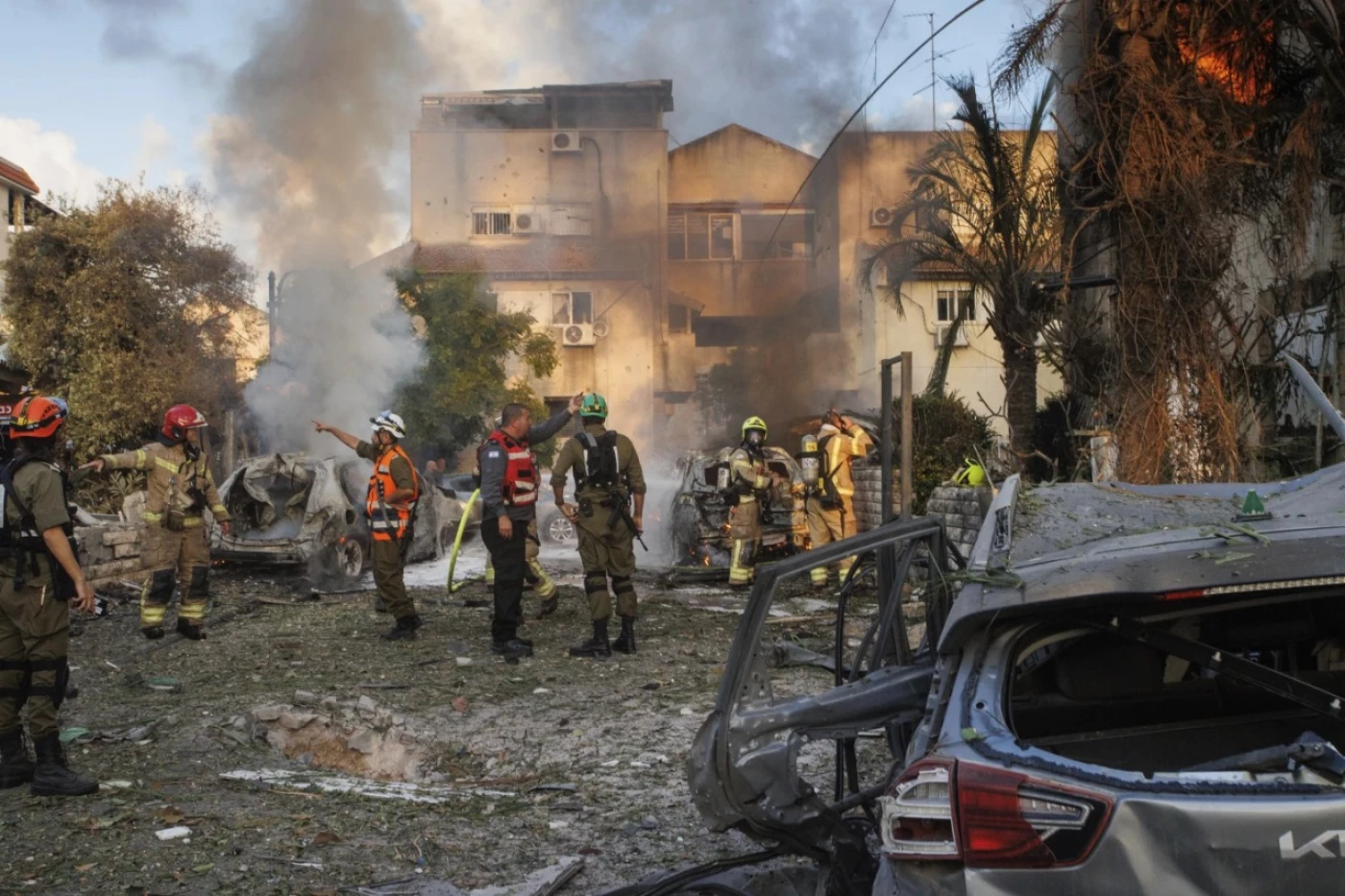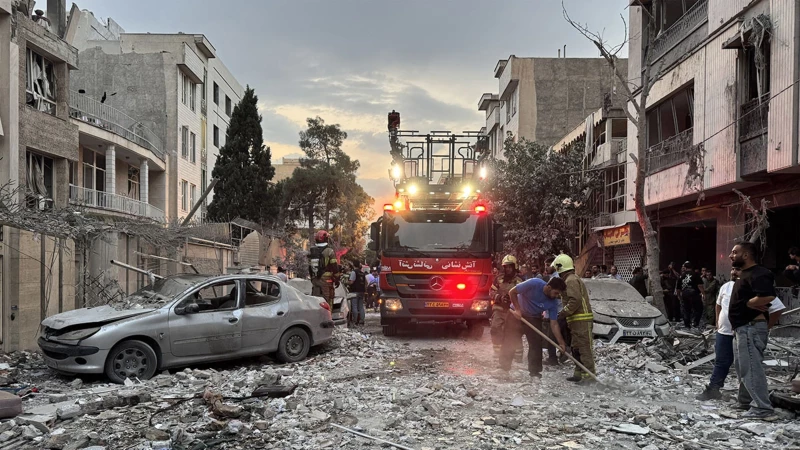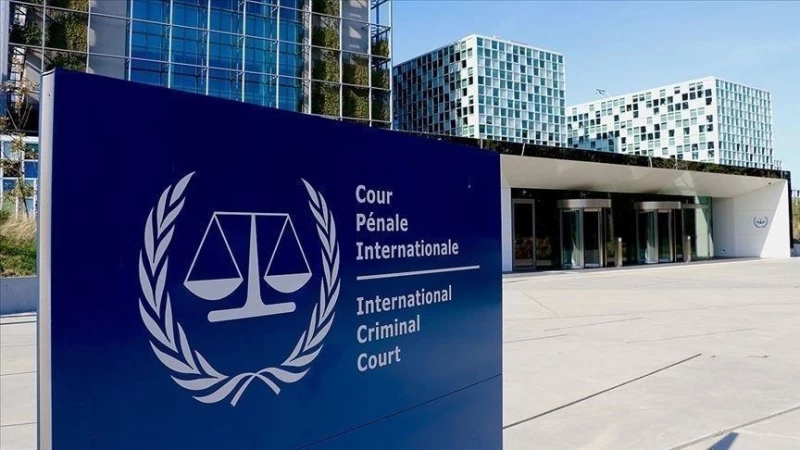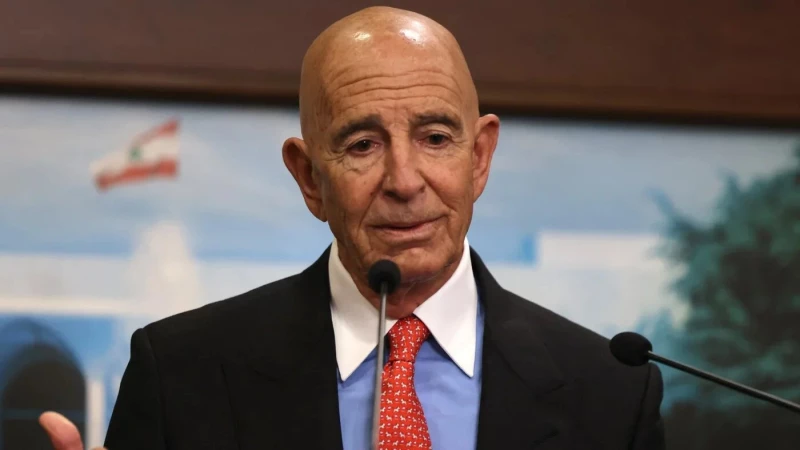DUBAI, UAE - Hezbollah launched dozens of rockets toward northern Israel on Sunday morning allegedly targeting Israeli military positions, with the Iran-backed militant group saying the strikes were carried out in support of the Palestinian people in Gaza and in retaliation for Israel’s last week cyberattacks in Lebanon which killed dozens and wounded around 4,000.
“The operation was a response to Israeli airstrikes on Tuesday and Wednesday that targeted communication infrastructure across Lebanon,” Hezbollah said in a statement.
The early Sunday strikes targeted the military-industrial complexes of Israel’s Rafael company, located in the Zevulun area north of Haifa, and the Israeli Ramat David airbase using "Fadi 1, Fadi 2 and Katyusha" rockets, the statement read.
The Ramat David airbase is located approximately 50 kilometers from the Lebanese border and was described by Hezbollah as a “key site” in Israel’s northern military operations.
Hezbollah said the attack was in retaliation for “the massacres committed by Israel against civilians, including women, children, and the elderly," and emphasized its “commitment to continuing operations against Israeli targets…”
Israeli media reported that since last night, more than 150 rockets, cruise missiles and drones were launched at northern Israel from Lebanon, in addition to cruise missiles and drones from Iraq.
Iraq’s Iran-backed Islamic Resistance has claimed responsibility for several attacks on Israeli territory since Sunday morning.
“The air force is ready in defense and attack,” the Israeli Defense Ministry said in a statement, adding their defense system intercepted the majority of the rockets and only “a handful” of them landed, with the falling shrapnels causing injuries and damage.
Rambam Hospital in Haifa confirmed it was treating five people, while Emek Medical Center in Afula said it had admitted eight injured individuals.
The rocket strikes caused considerable damage in northern Israeli towns, with two buildings in Kiryat Bialik reportedly destroyed. Additional rockets landed in the Krayot region, north of Haifa, sparking blazes.
Hezbollah has expanded the range of its attacks to reach as far as 60 kilometers into Israeli territory.
The recent Israeli airstrike in Beirut’s southern suburbs that killed senior Hezbollah commander Ibrahim Mohammad Aqeel, known as Hajj Abdul Qadir, has sparked widespread condemnation from Iraqi political and armed factions.
Leaders from Iraq’s resistance groups, including Kataib Sayyid al-Shuhada and Harakat al-Nujaba, have pledged their full support to Hezbollah, threatening retaliation and offering fighters to assist in Lebanon.
Iraqi leaders emphasized the deep ties between the Iraqi and Lebanese resistance movements, with many framing the attack as a broader threat to the entire Axis of Resistance. This unified Iraqi response signals growing regional solidarity against Israeli actions.



 Facebook
Facebook
 LinkedIn
LinkedIn
 Telegram
Telegram
 X
X


